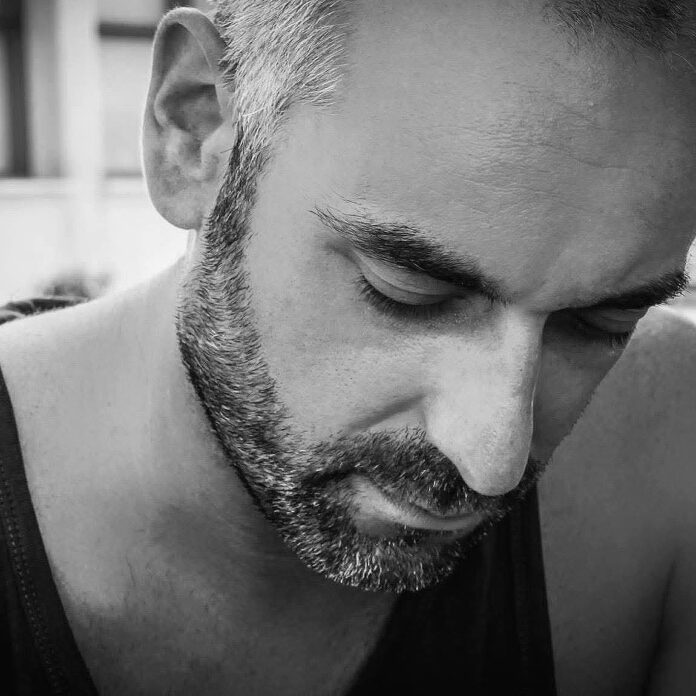If you judged Horimiya by its opening theme song, "Color Perfume" performed by Yoh Kamiyama, you'd probably expect a show filled with angst and drama. Instead, the anime is fluffy, hilarious and cute, making it seem as though, at first glance, the OP doesn't fit Horimiya at all. But upon closer analysis, it actually sheds light on some of the anime's major themes, particularly in relation to Miyamura's story.
The OP Shows Miyamura's Loneliness and Pain
The opening sequence starts with a single desk in the middle of an empty space before Miyamura flashes on-screen, already setting a rather somber mood. Since he was young, Miyamura has been ostracized because kids have made fun of him for being gloomy and weird. He generally keeps to himself, thinking that nobody wants to be friends with him. Borders are featured prominently throughout the opening, and while this is a somewhat standard anime opening visual, it does serve to symbolize how the characters have formed walls between each other.
When Miyamura is featured, he's almost always cast in blue or drained out colors. Colorful scenes of nature are juxtaposed with darker scenes that we can assume to be from Miyamura's past. Miyamura's depression is symbolized in a split-second scene of an enormous meteorite-sized rock hanging precariously above him, threatening to crush him.
The symbolism continues with the box that Miyamura is in, perhaps representing the inner turmoil and pain that he's keeping inside himself. He struggles to open himself up to people and to allow people to get close to him. When he picks up the box and pulls it close to his chest, he's trying to protect himself.
Reflective Imagery Also Shows Everyone Has More Than One Side
Reflection imagery plays a huge part in the opening theme, with each character being reflected off of windows or mirrors. The anime has been very clear that everyone has at least two sides of themselves: a public versus a private persona. Throughout the opening, Miyamura is constantly facing fences and mirrors, symbolizing that he doesn't think that he can ever get beyond that and experience real human connection.
Although those barriers were initially put up as a result of middle school trauma, it's Miyamura, himself, who is still maintaining those boundaries. He (wrongfully) assumes that nobody will want to know the real him. He's someone who tries to hide all the time, whether by growing his hair out to hide his piercings and his face or by sitting far away from anyone else.
Interestingly enough, although borders are featured heavily in the opening, Hori and Miyamura are the only ones who are looking across the division and at each other, turning the barrier into a mirror. That single look is brief before the two of them walk their separate ways, but it’s a connection, nonetheless: They're seeing the other for who they really are. However, as the opening continues, we see that when the two of them are on the screen together, it's Miyamura who's always walking away from Hori.
It's All About Miyamura Becoming More Vulnerable
One aspect of the opening that carries over into the show itself is the use of colored shadows that separate from Hori and Miyamura's bodies. These colored shadows appear most frequently when they're with each other and at their most exposed. This symbolizes them discarding their public personas and opening themselves up to each other.
The opening theme's lyrics may be touching on Miyamura's fears of opening his heart to Hori and giving too much of himself to her that they become "the same colored perfume." It can also be interpreted as Miyamura being scared that if he and Hori do end up dating and break up, he won't be able to forget about their time together. Hori, and her "perfume," have already become part of his life and he can't separate himself from her anymore.
It's not surprising to say that Miyamura has a hard time accepting the fact that he deserves to be loved. Despite how blatantly clear Hori's feelings are, he's adamant that it's impossible for her to love him. He doesn't want to presume but he also is afraid of what it might be like to be in a relationship with Hori -- to be emotionally vulnerable with someone that he loves. While Horimiya might be a light and cutesy show, this heavy emotional undercurrent justifies the more dramatic opening sequence.


